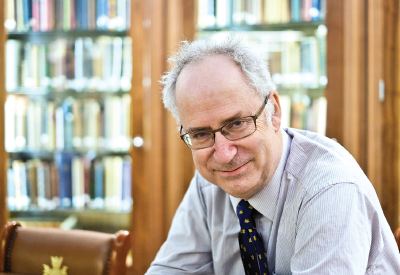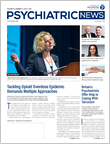It’s been a tough year for the British.
A terrorist drove a car onto the sidewalk on London’s Westminster Bridge on March 22, killing four pedestrians, and then stabbed a police officer before being shot to death. Then on May 22, 22 people were killed by a suicide bomber as they left a pop concert in Manchester. On June 3, a second ramming and stabbing attack occurred on London Bridge and at nearby Borough Market. Eight members of the public died and 48 were injured before the three attackers were killed by police. On June 14, London’s Grenfell Tower went up in flames, with 79 dead at press time. Then, on June 19, a man drove a van into a group of pedestrians near a mosque in North London, an apparent act of revenge against Muslims.
The events may have been horrifying but, on some level, they were not surprising to those who live in the United Kingdom.
“Yes, we notice sirens more than before, and we see more armed police, but it’s not as if this is actually new,” said Sir Simon Wessely, a professor of psychological medicine at the Institute of Psychiatry at King’s College London and president of the Royal College of Psychiatrists (RCP), in an email interview. Britain dealt with Irish Republican Army violence from the 1970s to the 1990s and bombings in 2005 in the London Underground that killed 52 and injured 784 people. Older residents recall the Blitz, the German aerial bombardment of London during World War II.
Wessely has observed a pragmatic approach by his fellow citizens in coping with these events, at least so far.
“We are in the transition period in which each individual act of violence causes a ripple of fear across the city, at least until we have all established that our loved ones are safe,” he said. “And indeed, as our mobile networks become more robust and more people check into Facebook, this has become easier. And after that we talk to each other.”
The British stiff upper lip may be a clichȳ, but Wessely and his RCP colleagues do their best to discourage catastrophizing about psychological reactions in the wake of the multiple recent disasters.
“People are far more resilient in the face of traumatic events than they are sometimes given credit for,” wrote Wessely in a letter to the Times of London just after the Manchester bombing. Following recommendations in a 2016 RCP position statement, the letter cautioned against an immediate search for psychopathology. “Screening should not be done until at least three months after the event, so that those affected have a chance to deal with their emotions by talking to friends and family first.”
The presence of Britain’s National Health Service (NHS) may ease some of the access issues confronting people seeking psychiatric care, although the 2016 RCP position statement did call for “better provisioned,” evidence-based trauma services in all areas of the country.
The British government, through the Home Office, set up a website headed “Terror attacks: support for people affected.” It contains links for “victims, witnesses, and those affected” by each specific attack and again notes that most people will recover naturally but that some may need professional help if “symptoms are severe or continue beyond four weeks.” Those individuals are urged to visit their general practitioner and can use a sample letter posted on the site to give to the doctor, which says in part: “It is often difficult to talk about mental ill-health, and the purpose of this letter is to support those who are experiencing symptoms to start a conversation with their GP or health care practitioner about their options for treatment.”
Links are also provided to find local psychological therapy services within the NHS, and there is a 24/7 victim support telephone line that offers “emotional and practical support to anyone affected by the terrorist attack[s].”
The chair-elect of the child and adolescent psychiatry faculty at the RCP, Bernadka Dubicka, M.D., a child and adolescent psychiatrist at the Care Foundation Trust in Lancaster, in May urged a thoughtful approach for parents to address the concerns of children.
“We would not advise hiding your child from what may be on the news or social media,” said Dubicka through the RCP. “Respond to their questions or concerns and help them to understand that although what has happened is awful, these events are extremely rare.”
The RCP position statement also advises against psychological debriefing shortly after traumatic events, since that practice has been shown to cause more harm than good.
“The provision of counseling in the short term simply doesn’t work as it does not afford people the time or space to deal with traumatic events in their own way,” agreed forensic psychiatrist Neil Greenberg, M.D., a professor of military mental health at King’s College London, in a statement issued by the RCP. “Most people who experience distress after a traumatic event will recover without the need for any professional intervention.”
However, Wessely acknowledged, those who are injured or who never make contact with their loved ones again may have difficulty recovering. And he also cautioned that things could get worse.
“If this becomes the new norm as happened in Belfast or Tel Aviv, then we will habituate to different ways of living and accept increasingly onerous restrictions on our lives, but we are not at that stage yet,” he said. ■
The Royal College of Psychiatrists’ position statement “Responding to Large-Scale Traumatic Events and Terrorism” can be accessed
here. The Home Office’s website “Terror attacks: support for people affected” is available
here. There is specific information related to each of the recent attacks.

